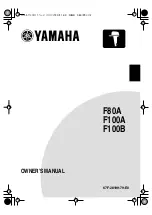
SWRA273C
January 2015
10. TX: Start PER Test
The transmitter is now configured for the
PER test. The PER test is started and
stopped by pushing the joystick (as a
button). The transmitter will display the
number of packets sent during the PER
test.
After stopping the test, it will start from
the beginning if the test is restarted.
11. RX: Observe PER
The PER test receiver will display the
PER value (number of lost and erroneous
packets divided by the number of packets
sent, displayed as a fraction of 1000).
The receiver will also display the number
of received packets and a moving
average RSSI value based on the last 32
packets.
By pressing button 1, all counters on the
receiver will be reset and the receiver will
restart the PER calculations.
12. SmartRF Studio
After running the PER test, the next
recommended step is to install SmartRF Studio
and to connect the evaluation board to the PC.
When installing SmartRF Studio, you will also
install the USB drivers required for the
SmartRF05EB board.
SmartRF Studio can be used for RF testing
and evaluation of C2530.
SmartRF Studio can be downloaded from
13. Flash Programmer
Texas Instruments has a simple tool
which can be used to program the flash
on the CC2530.
The Flash Programmer application,
available on the kit web page [2], can be
used to program Intel HEX files, read the
contents of flash and several other
operations.
Programming of a CC2530 can be done
through the SmartRF05EB.
Production
programming
tools
are
available from TI’s developer network [5].
14. IAR Embedded Workbench
To develop software, program and debug
the CC2530, you should use IAR
Embedded Workbench for 8051.
A free evaluation version of IAR EW8051
is included in the kit. A free, code size
limited version can be downloaded from
the web. See
15. Packet Sniffer
In order to debug RF protocols, it is possible to
use TI’s SmartRF Packet Sniffer.
You can use the CC2531 USB dongle,
included in this kit, or the SmartRF05EB with a
CC2530EM, to capture the packets.
A. Available Software
CC2530 Software Examples
Source code for the PER test and other
simple examples for the CC2530 [1]
CC2531 USB Firmware Library
Basic USB stack for the CC2531,
including HID and CDC examples [2].
Z-
Stack™ Software
TI’s ZigBee-compliant protocol stack
RemoTI™ Network Protocol
TIs’ implementation of the ZigBee
RF4CE standard:
TIMAC Software
TI’s IEEE 802.15.4 medium-access-
control stack:
B. More information
On Texas Instruments’ Low-Power RF
web site you will find all our latest
products, application and design notes,
FAQ section, news and events updates,
and
much
more.
Just
go
to
The Low Power RF Online Community
has forums, blogs and videos. Use the
forums to find information, discuss and
get help with your design. Join us at
The TI LPRF eNewsletter keeps you up to
date on e.g. new products, application
notes, software and events. Sign up at
C. References
[1] CC2530 product web page
[2] CC2531 product web page
[3] CC2530 Development Kit
[4]
SmartRF05EB User’s Guide
[5]
LPRF Developer’s Network
http://focus.ti.com/general/docs/genconte
nt.tsp?contentId=98994





















